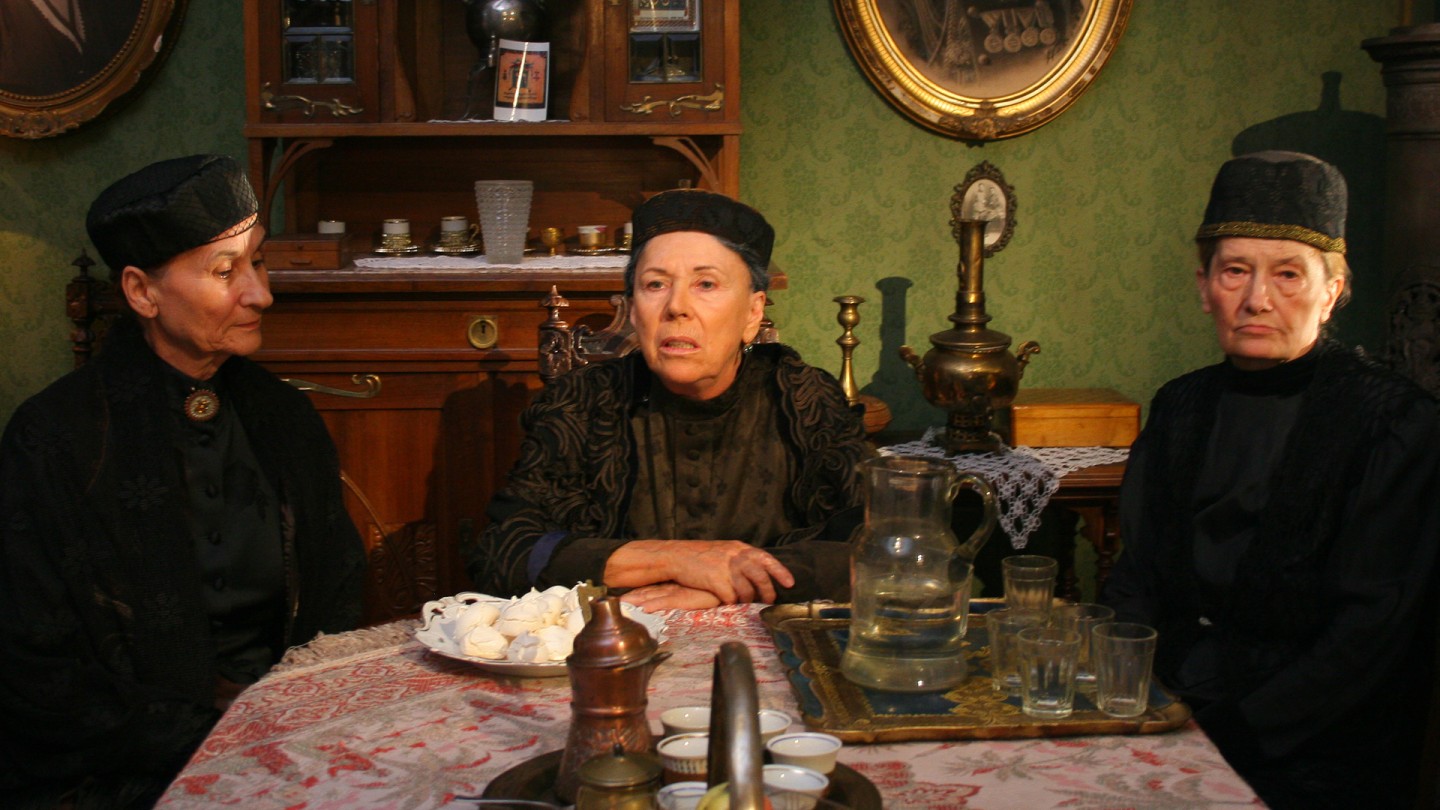
Adio Querida: TV Spotlights Sephardim in the Balkans
The Sephardim, whose ancestry can be traced back to Spain before the Jewish Expulsion in 1492, lived peacefully in the Balkans for centuries, maintaining their own culture and traditions. Before World War II, they constituted roughly one third of the Jewish population in Yugoslavia. They were merchants and artisans, predominantly working class, and concentrated in major cities like Sarajevo and Belgrade. Until the early 20th century, most Sephardim lived in relative isolation and spoke Ladino as their first language. Sephardic women, especially, had limited contact with the outside world, keeping their social and cultural activities confined largely within the Jewish quarter.
In “The Scent of Rain in the Balkans,” the Salom family is caught between observing traditional piety and patriarchal Jewish customs, an integral part of the Sephardic community, and assimilating into Yugoslav society. As the four daughters grow into strong and independent women, they find themselves proudly embracing their Sephardic identity while breaking many of their community’s social conventions.
For instance, the oldest daughter Laura (“Buka”) marries Danijel Papo, a fellow Sephardic Jew, but returns to her family’s home after the birth of her twin sons when her husband is institutionalized following a mental breakdown. The second daughter, Nina, who owns a hat boutique, causes a major rift within the Sephardic community when she falls in love with Skoro Ignjatic, a Serb. In response to Nina’s relationship with Skoro, Aunt Nona, the family’s matriarch, deeply respected within the Sephardic community, curses the narrator’s parents by saying “may all of your daughters marry Christians.” Nona’s curse becomes a self-fulfilling prophecy.
Filmed in Belgrade, Sarajevo, Zagreb, and Dubrovnik, directed by actor, director and producer Ljubisa Samardzic, “The Scent of Rain in the Balkans” is many respects a telenovela. At times the script feels formulaic in highlighting the love and suffering of the Salom family. But the series breaks the mold by focusing on the Sephardim, a community largely overlooked in Yugoslav literature and cinema. Despite no previous history of anti-Semitism in Yugoslavia, 80 percent of Yugoslavia’s Jews were murdered during World War II after the Nazi occupation of the country. In 1948 the vice president of Yugoslavia, Mose Pijade, a Sephardic Jew from Belgrade, convinced President Tito to allow surviving Jews to emigrate to the newly established State of Israel.
While the story represents critical junctures in the history of the Yugoslav Sephardic community, it also represents critical junctures in the history of Yugoslavia as a nation. As the tragic tale of a Sephardic Jewish family, “The Scent of Rain in the Balkans” documents a community and country which no longer exist.
Beginning March 7th, MHz Networks premiered “The Scent of Rain in the Balkans,” the first Serbian TV series to be released in the U.S. on its SVOD platform MHz Choice. Click here for access online to the series.
The views and opinions expressed in this article are the author’s own and do not necessarily reflect those of Lilith Magazine.



